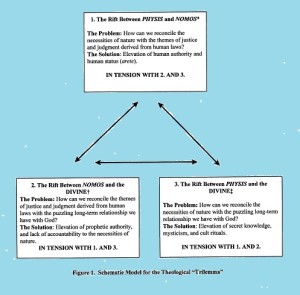TBM18: Some Thoughts on Soul Purpose
Soul purpose is one of the least discussed issues of mainstream religion and one of the most poorly understood issues for New Age teachers.
The concept of soul purpose is so deeply intertwined with Divine Love that it can’t be separated from other core spiritual values such as forgiveness, healing, courage, trust, gratitude, and devotion.
Indeed, it wouldn’t be possible for you to know courage, trust, gratitude, and devotion without your own unique “envelope” of soul purpose to hold all these blessings together inside your own consciousness.
That’s a bit of twist on your understanding of soul purpose, isn’t it?
I’ve read many different theories about soul purpose, theories that attempt to explain why you’re here on Planet Earth and what you can do about this painful reality. The core teachings of Buddhism (the Four Noble Truths, the Eightfold Path) are devoted exclusively to the question of soul purpose, even though these teachings don’t include the word “soul.”
Traditional Christian teachings, which are founded on Paul’s theories of sin, separation from God, sacraments, and salvation, are similarly devoted exclusively to the question of soul purpose, though they never actually say so.
The honest truth is, you don’t need a religion founded on a promise of “Escape” from your own corrupted soul unless you believe in the first place that you ARE a corrupted soul.
I grew up in a household that operated according to Northern European Protestant teachings on the sinful nature of humankind and the absolute duty of every individual to crush sinful thoughts through hard work, suppression of emotions, obedience, lawfulness, and the pursuit of excellence.
So my sister and I, we always felt guilty. We weren’t quite sure why we felt so guilty, but we did, and we tried very hard to behave correctly so we wouldn’t have to feel so guilty.
In the Protestant culture I was raised in, it was assumed that individuals, including children, are not capable of generating a sense of duty and service to others — that is, a sense of soul purpose — from within. They’re not capable of finding and living a sense of soul purpose on their own. Duty must therefore be imposed from the outside by the laws and traditions of the culture, we’re told.
This assumption comes, in part, from the orthodox teachings of the Protestant Church, as expounded by men such as Martin Luther, John Calvin, Ulrich Zwingli, and John and Charles Wesley, to name a few. These men believed that human beings don’t have anything to brag about. Ever. They believed that all people are born sinful at the core, and that we as human beings can best serve God by never thinking for a moment that there’s anything good inside us that we can claim as our own. We must, according to these thinkers, take full responsibility for all the “bad” we think and do, but we are never, ever, allowed to take full responsibility for the “good” we think and do. To believe in our inner goodness would be pure hubris — a terrible violation of the laws of humility.
If you’ve been reading my other blogs, you know what I think of the Church’s traditional teachings on humility.
So it would be fair to say that the search to find your own soul purpose is the search to let go of religious humility.
It’s impossible to simultaneously live your own soul purpose AND accept religious teachings on humility (that is, intentional eradication of the self). You have to choose between wanting to learn to like and trust yourself (soul purpose) OR wanting to become “an empty vessel in service to God” (humility). The former choice will take you forward on the Spiral Path. The latter choice will derail you. But the choice is still up to you because you have free will.
When I entered graduate studies in theology in 2007, my original goal was to seek ordination in the United Church of Canada. This was before I discovered that the United Church requires its ministry candidates to choose humility.
I just can’t understand why the Church believes a minister can only be of true service to God if he or she submits to a process of eradicating the core self that is the good soul.
I can understand the Church’s desire to insist on high standards of ethical conduct in its ministers. I can understand the Church’s desire to identify and arrange treatment for addiction problems and major mental health issues. I can understand the Church’s desire for ministers to be reliable and trustworthy and empathetic and genuinely interested in serving the needs of others.
But, you know, the only way to accomplish these worthy goals is to ensure that ministerial candidates know more about themselves, not less.
And this goes for other religions, too, not just Christianity.
The inner soul of every human being is desperate to be kind, helpful, brave, polite, grateful, humble, and not addicted to status. Every. Single. Human. Being.
Young children (under the age of 2), except for those raised from the get-go in an abusive environment, are naturally and instinctively kind, helpful, brave, polite, grateful, humble, and not addicted to status.
I had to wait until I became a mother myself to see this lesson right in front of my face.
My two young sons were really nice people. Sure, they were small and physically helpless. But they were so observant. And so quick to learn. And so kind to me. And so nice.
And soon I would discover, when my younger son was diagnosed at age 2 1/2 with leukemia, that my sons were not only nice, they were trusting and courageous at a level that astounded me. That stunned me. That told me they knew something important that I didn’t — or that I’d long since forgotten.
My sons weren’t “special” or “chosen.” They were just being themselves. They were being their core selves — good souls, kind souls, loving children of God.
Unless you’ve seen for yourself the unrelenting forgiveness offered by a child who’s been trapped in a hospital isolation room for months and given searingly painful medical treatments again and again, who has suffered a massive stroke but relearns to walk anyway without complaint, who is prevented by medical protocols from playing with other children or living a normal life despite his great love for other people, you may not believe me. Until you’ve seen for yourself the courage of a 5 year old boy who gives his bone marrow to his little brother without ever complaining or doubting, you may not believe me.
But I’m telling you the truth my children told me. I’m telling you that you were born this way. I’m telling you that inside your own battered head lives a kind, helpful, brave, polite, grateful, humble, status-free angel who doesn’t need any law books or contract clauses or religious codes to know the difference between right and wrong. I’m telling you that your core self is real and can never be taken away from you. I’m telling you it’s okay for you to believe that, as a soul, you’re a person God not only loves, but that God actually likes and trusts. (Otherwise, you wouldn’t be here.)
You’re richer than you think.

From the earliest months of their lives, my two sons were completely different from each other in temperament and talent. Yet both were kind, trusting, curious, and true to their soul selves. They were my greatest teachers. Photo (c) JAT 1988.

















